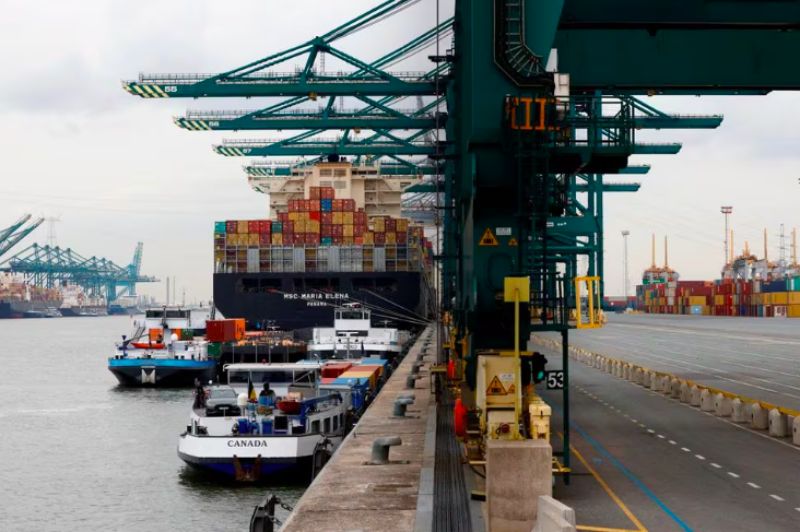The Red Sea, a crucial maritime corridor that has long served as a lifeline for global trade and travel, faces an unprecedented challenge. Recent events have led to the suspension of voyages across this vital waterway, prompting concerns and discussions across multiple sectors. This article explores the implications of this development and examines the potential paths forward.
The Strategic Importance of the Red Sea
Before delving into the current situation, it's essential to understand the Red Sea's role in global maritime trade. The Red Sea is a key shipping lane that connects the Mediterranean Sea to the Indian Ocean via the Suez Canal, making it a pivotal route for cargo ships traveling between Europe, Asia, and Africa. This waterway is not just a conduit for goods; it's also a significant route for oil transport, making its closure a matter of global concern.
Immediate Impact on Global Trade
The suspension of voyages has immediate and far-reaching effects. It disrupts supply chains, leading to delays in the delivery of goods and potential shortages. The shipping and logistics industries are particularly hard hit, facing increased operational costs and the need to seek alternative routes. This development could potentially lead to a rise in shipping costs, impacting consumer prices worldwide.
The Ripple Effect on Regional Economies
Countries bordering the Red Sea, many of which rely heavily on maritime trade, are directly impacted. This suspension could hinder their economic growth, affecting local industries and employment.
Exploring Alternatives and Solutions
In response to these challenges, companies and governments are exploring alternatives. Rerouting ships, though costly and time-consuming, is one immediate solution. In the longer term, this situation may accelerate investments in overland transport routes, like railways and trucking networks. Additionally, it highlights the need for improved maritime infrastructure and crisis management strategies in the region.
The Need for Global Cooperation
This situation underscores the importance of international cooperation in managing global trade routes. Collaboration between nations can lead to shared strategies for crisis management, ensuring the continued flow of trade and minimizing disruptions.
The suspension of voyages across the Red Sea is a stark reminder of the fragility of our global trade systems. It challenges us to rethink and reinforce our maritime infrastructure and crisis response mechanisms. As the world navigates these uncharted waters, cooperation, innovation, and resilience will be key to overcoming these challenges and securing a stable economic future.
Follow Dowell for updates on this developing situation and more news information.

Post time: Dec-21-2023
